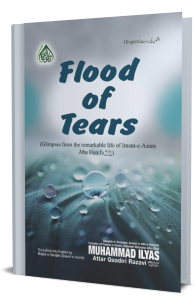
Role model
The conduct of the Masjid administration
(Part 5)
Maulana Abun-Noor Rashid Ali Attari Madani
Continued from previous issue…
6. Dealing with the Local Community
* The masjid committee should take a balanced approach, treating worshippers and the local community with dignity and respect and supporting them in their religious commitments.
* Issues involving masjid staff or someone from the community should be addressed professionally and with confidentiality instead of publicising the affair. A respectful and proportionate manner must be adopted when barring someone from the masjid due to compelling Islamic or legal reasons as this is a sensitive matter. Otherwise, taking a disproportionate, angry, and quarrelsome approach will only drive people away from the masjid permanently and the responsibility will lie with the management. An Imam from Karachi witnessed this phenomenon first-hand. When the Covid lockdown came into effect in Sha’ban-ul-Mu’azzam, 1441 AH, the masjid temporarily closed wudu facilities to the public. Around the same time, he had to leave the city for work but upon returning, he noticed that a few regular worshippers were absent for several days. After managing to contact them, he learned that because a committee member had disrespectfully lambasted them for using the wudu facilities, they decided never to return to the masjid. Eventually, by apologising on behalf of the committee and through extensive efforts, he convinced them to return.
* The committee has a duty of care towards the property of others that is borrowed for masjid use. Ensuring that borrowed items are returned to their rightful owners is an important aspect of this duty.
7. Enhancing Masjid Activities
Everyone is aware that the primary purpose of a Masjid is to facilitate the worship of Allah Almighty and to foster a communal environment; mere aesthetically pleasing decoration and embellishment is not the purpose at all. Therefore, alongside planning facilities for the Masjid, the committee should focus more on populating the Masjid with worshippers. What follows are a few ideas to help committees in this cause and make the Masjid flourish, by Allah’s grace اِنْ شَــآءَالـلّٰـه:
* In consultation with the Imam, organise thoughtful lectures about:
* The life and the virtues of the Beloved Prophet صَلَّى الـلّٰـهُ عَلَيْهِ وَاٰلِهٖ وَسَلَّم in Rabi’-ul-Awwal
* Sayyiduna Shaykh ‘Abdul-Qaadir Al-Jeelani and other friends of Allah عَزَّوَجَلَّ in Rabi’-ul-Aakhir
* Essentials of fasting in Ramadan
* The rulings of Eid when the days of Eid approach.
These are a few example but in general, short courses, intensives, and lectures should be offered as per the needs of the community throughout the year.
* Deliver structured classes for children to learn Tajweed and Islamic Studies and recognise their achievements through annual or termly awards and events. However, the expenditure for these activities cannot be taken from the Masjid’s funds so other means need to be sourced.
* Committee members should punctually and regularly participate in Masjid events such as gatherings, special nights of worship, I’tikaf, and other occasions.
* A carefully planned budget that accounts for essential outgoings such as remunerations for the Imam and Muezzin, utility bills, and repairs is vital. The committee must take active measures and creative steps to reduce any deficit such as organising fund-raisers and liaising with local businesses.
* The committee should schedule regular forums for the public to share their views and monthly staff meetings with set agendas.
* If there are power outages in the area, the Masjid committee should make arrangements for lighting via rechargeable lights, U.P.S, a generator or other means. The best way is to fix some rechargeable lights in the Masjid that come on themselves when the power goes out.
* The Masjid committee should also make arrangements for monthly cleaning of the Masjid, especially in those Masajid where the roles of Muazzin and caretaker are undertaken by one person and the Masjid is an area where dust and dirt are always in the air.
* In some Masajid, all fans and lighting are switched on immediately after the Azaan, and in some, this is done before the Azaan; the Masjid committee should regulate this and lights and fans should only be switched on in accordance to the need. Likewise, arrangements should be made to switch on and switch off the water cooler and boiler in accordance to the weather.
* Arrangements should be made for the funeral bier, the cloth which has the Kalimah on it and the gatherings of Isal-e-Sawaab in the Masjid. Also, date seeds or beads should be arranged in the Masjid for the reading of the Kalimah, Tasbih, etc. as these things bring the locals closer to the Masjid.
* There is a great need to take care of Masjid supplies. Sometimes, during rainfall, storms and construction of the Masjid, when the masjid committee are not active things like carpets, mats and electrical equipment such as lights and fans end up bearing the brunt of the rain and the storm which is very damaging for the Masjid. Always remember that the Muazzin and caretaker are responsible for those things that they are hired for in accordance to custom (‘Urf). If Masjid supplies are left unprotected or they are piled up, in any case, the Masjid committee will have to answer in the court of Allah Almighty and they are responsible for it in the world also. Therefore, as custodians of the Masjid, they must pay attention to the protection of the Masjid’s supplies.
* The committee should maintain a professional approach in which tasks are shared by different members and not assigned to a single or handful of people.















Comments